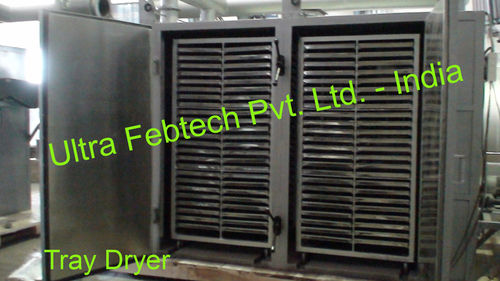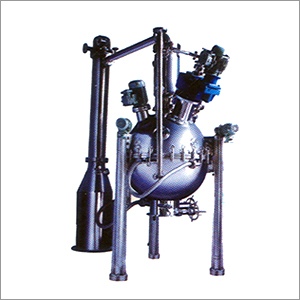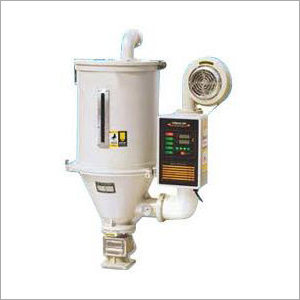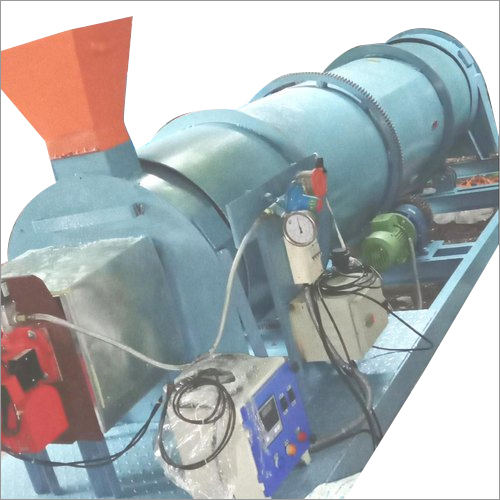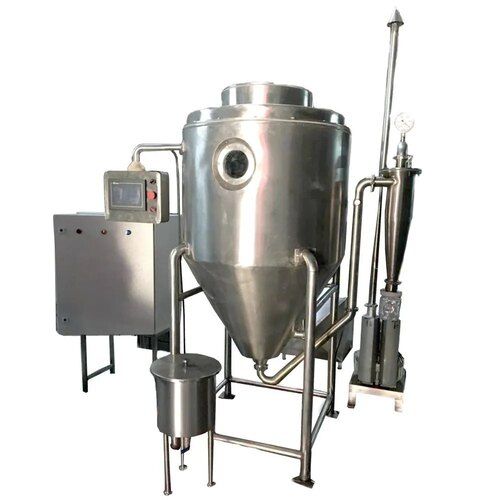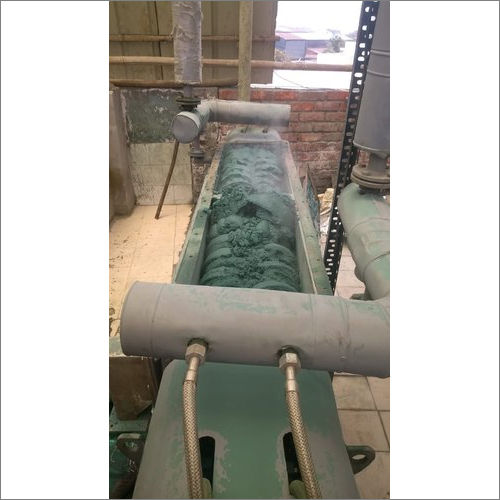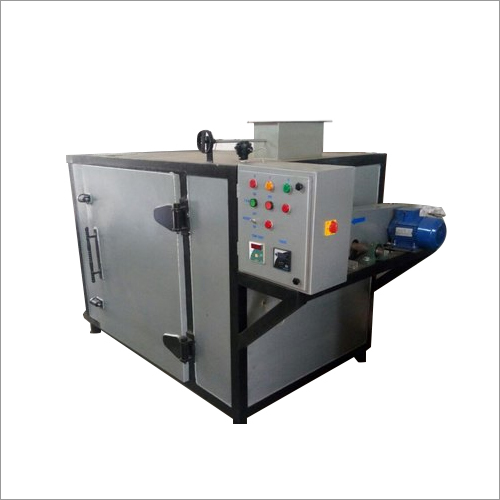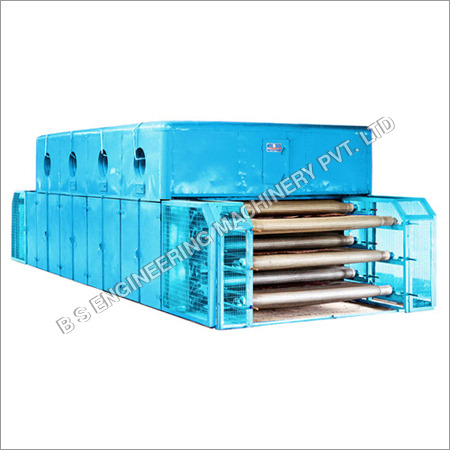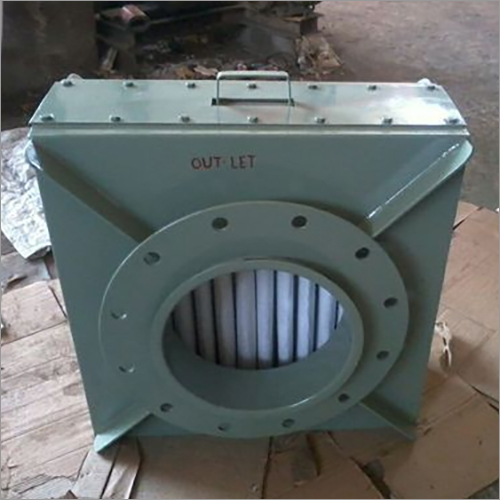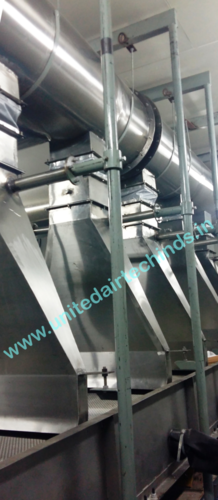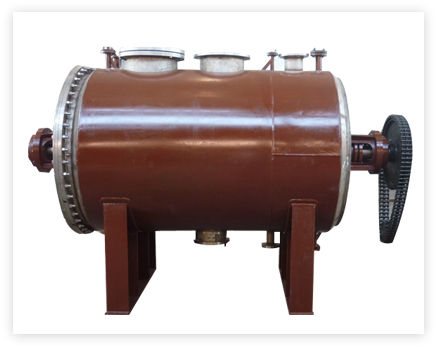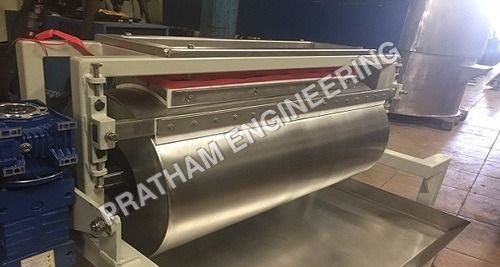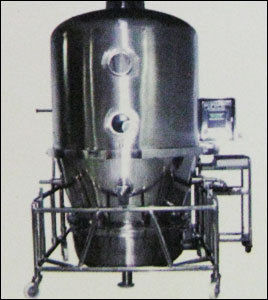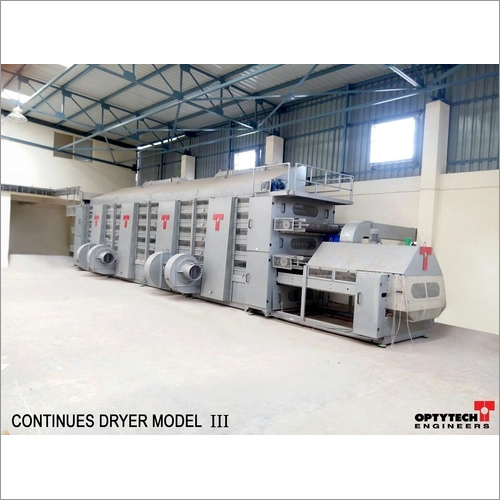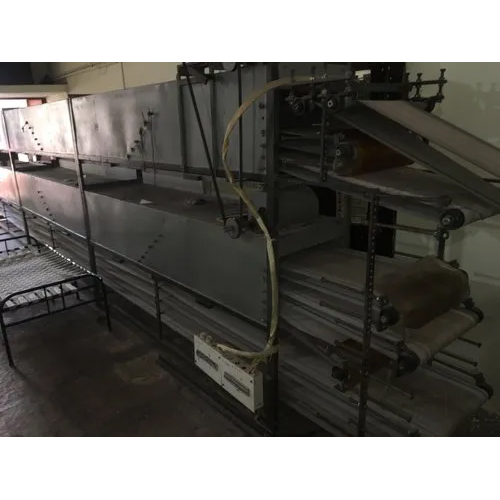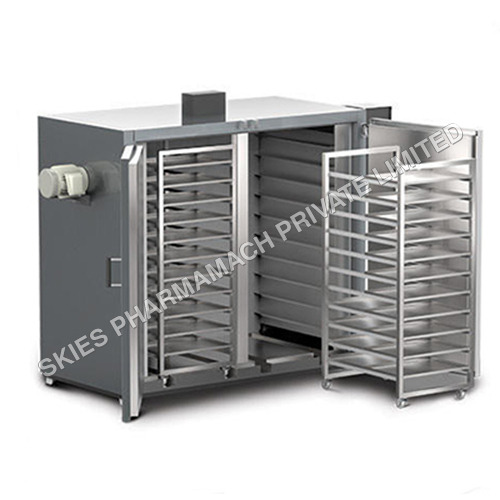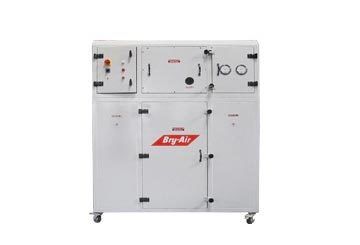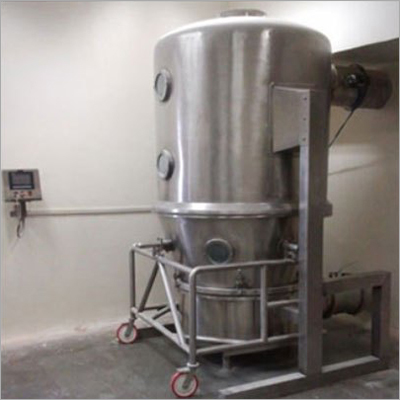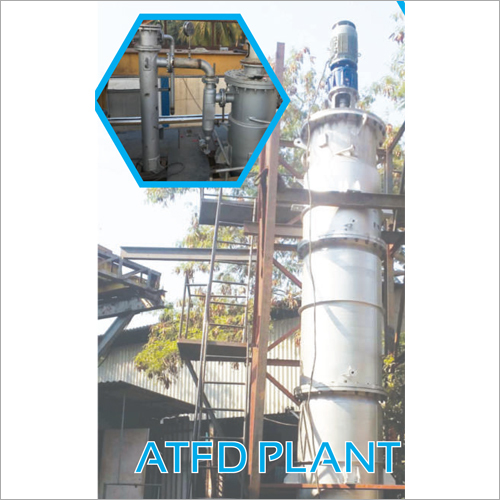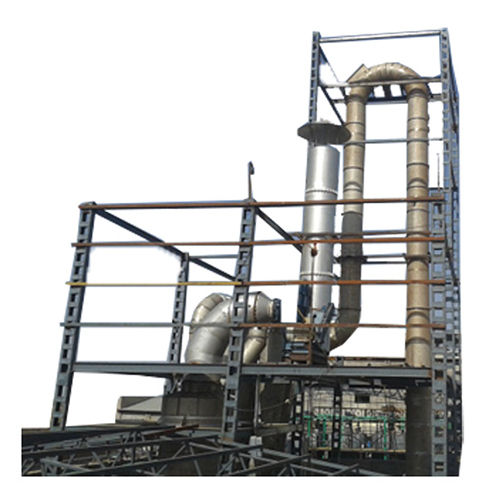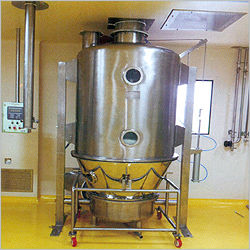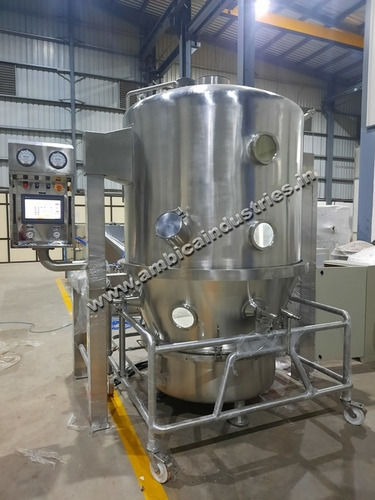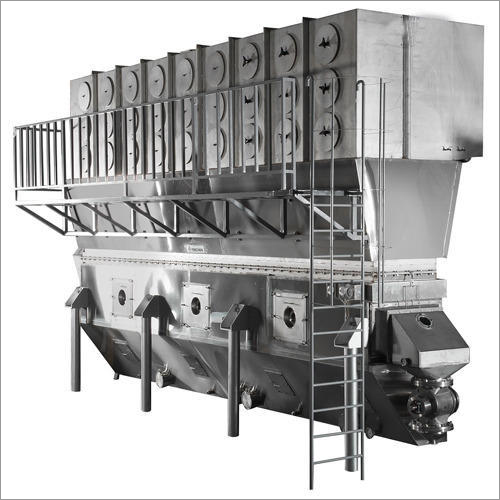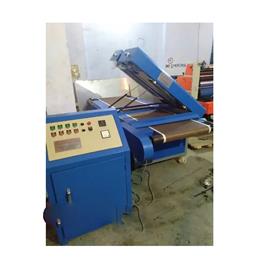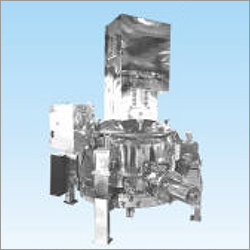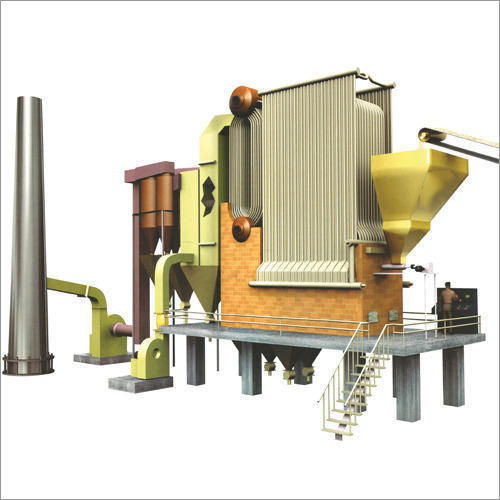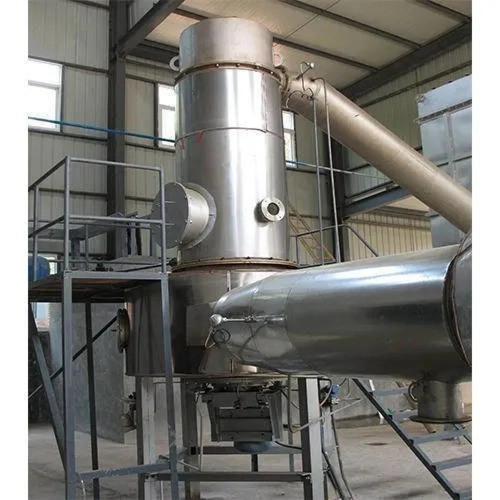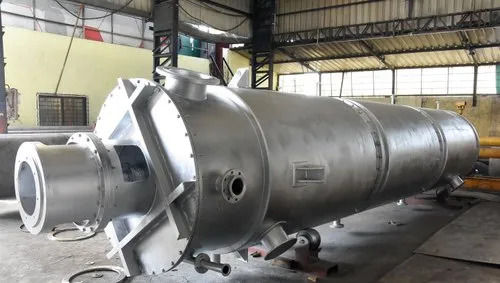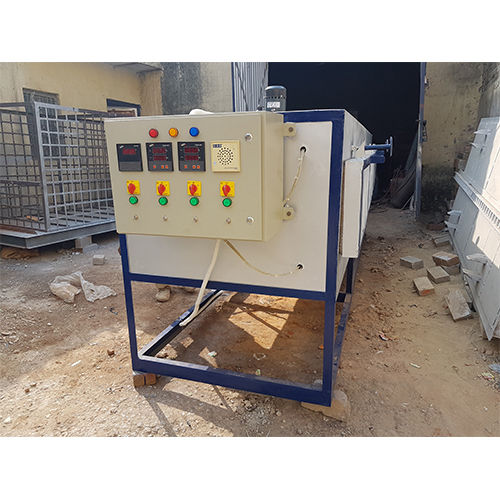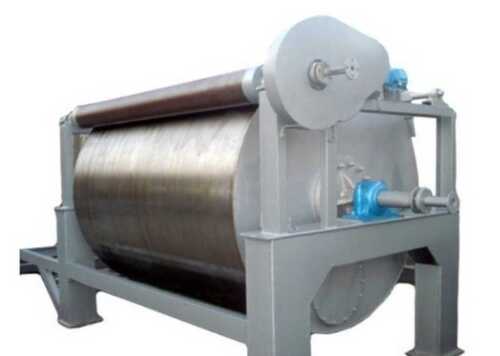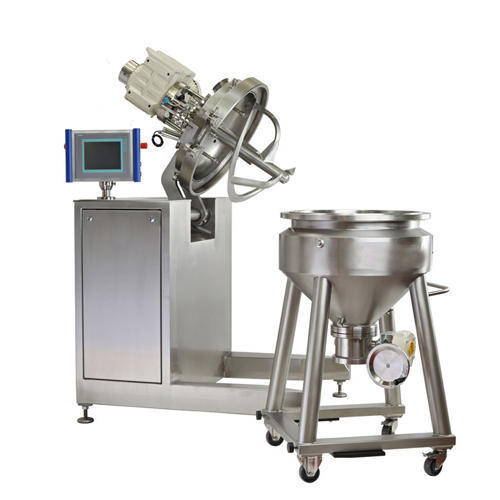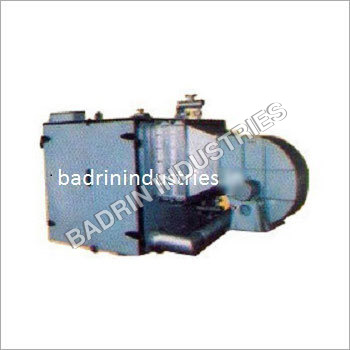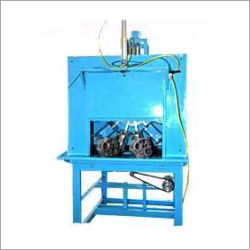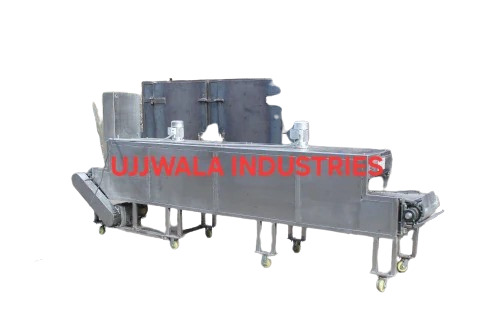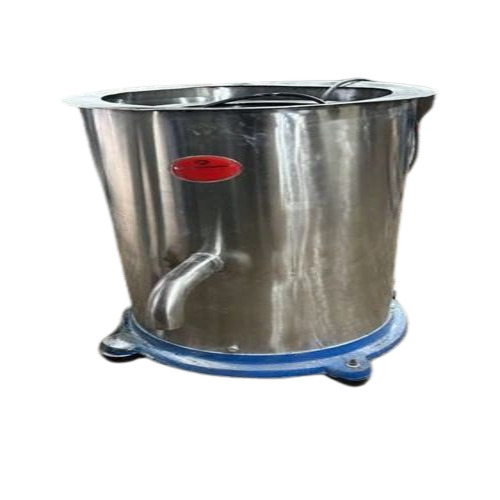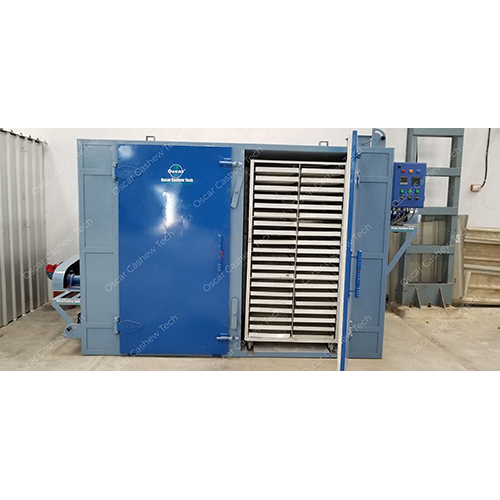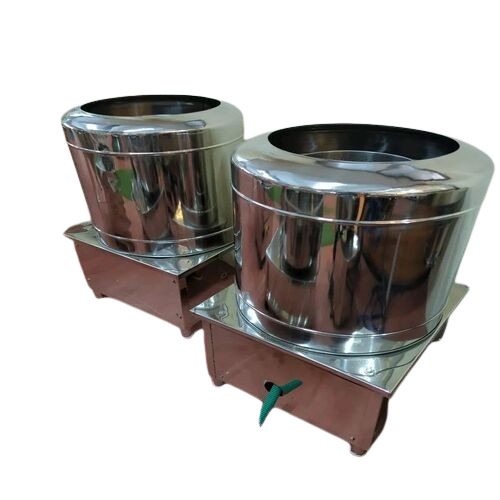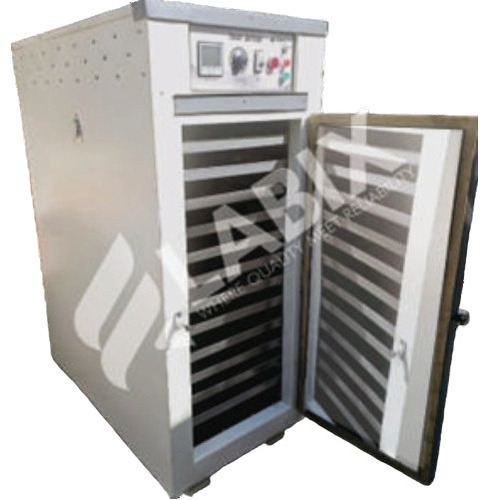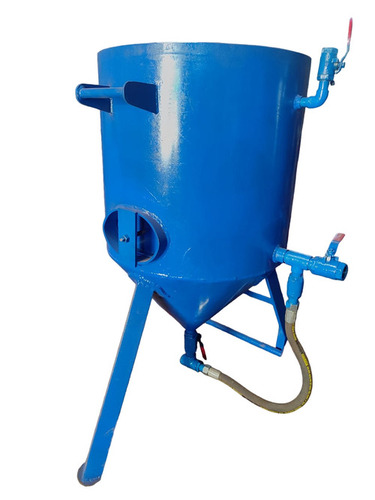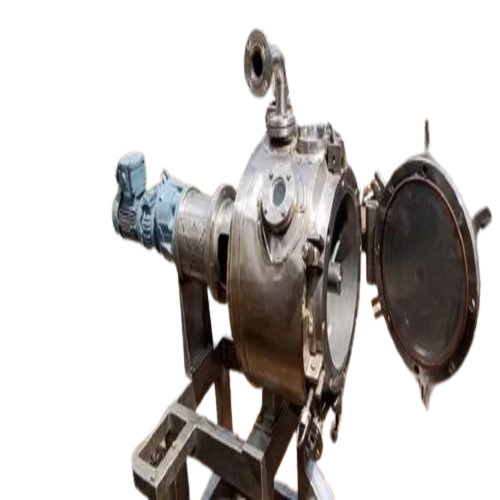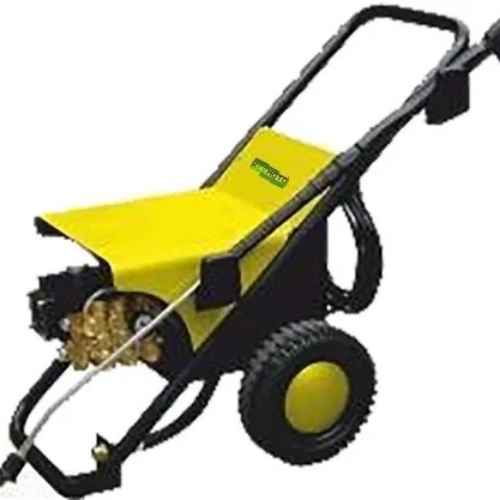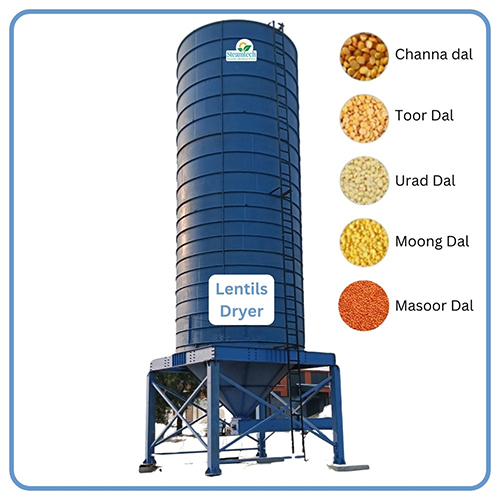Industrial Dryers
(2806 products)Industrial Tray Dryer - Metal, Superior Durability & High Quality Performance | Ideal for Various Industrial Applications
Price: 500000 INR/Unit
MOQ1 Unit/Units
UsageIndustrial
MaterialOther, Metal
Spherical Dryer
Price: 200000.00 INR/Unit
MOQ1 Unit/Units
Supply Ability10 Per Week
Delivery Time4-5 Months
Packaging DetailsPacking in corrugated box, shrink wrapping and wooden crates available.
White Hopper Dryer
MOQ1 Piece/Pieces
Product TypeHopper Dryer
ColorWhite
UsageIndustrial
MaterialSteel
Re Blowers India Private Limited
Mumbai
Industrial Rotary Dryer - Voltage: 415 Volt (V)
Price: 510000 INR/Unit
MOQ1 Unit/Units
Temperature200 Celsius (oC)
UsageIndustrial
Fuel TypeGas
Product TypeIndustrial Rotary Dryer
Voltage415 Volt (v)
Mini Spray Dryer - Material: Stainless Steel
Price: 1000000 INR/Kilograms
MOQ1 Piece/Pieces
Weight100- 50000 Kg/ hr Kilograms (kg)
MaterialStainless Steel
Voltage220-240 Volt (v)
Temperatureup to 600 degree Celsius Celsius (oC)
Luftsol Engineering Private Limited
Pune
Lime Sludge Dryer
Price: 50000 INR/Unit
MOQ1 Unit/Units
Supply Ability10 Per Week
Delivery Time15 Days
Whirler Centrifugals Pvt. Ltd.
Ahmedabad
Tray Dryer Machine - Stainless Steel, 415 Voltage | Silver, Industrial Usage
Price: 150000 INR/Piece
MOQ1 Piece/Pieces
Product TypeTray Dryer
ColorSilver
UsageIndustrial
MaterialStainless Steel
Voltage415 Volt (v)
Innovative Engineering Works
Ahmedabad
 Super Bonanza
Super Bonanza Trusted Seller
Trusted Seller Super Premium
Super Premium Premium Seller
Premium Seller4 Years
 Super Premium
Super PremiumBamboo Mat Dryer - Color: Blue
Price: 3000000.00 INR/Piece
MOQ1 Piece/Pieces
Product TypeMat Dryer
UsageIndustrial
ColorBlue
MaterialStainless Steel
Voltage440 Volt (v)
Warranty1 Year
Rotary Drum Dryer - Color: Blue
Price: 1400000 INR/Number
MOQ01 Number
Product TypeRotary Drum Dryer
UsageIndustrial
ColorBlue
MaterialStainless Steel
Compressed Air and Gas Dryer - Mild Steel, 130x140x140 cm, Green Color Coated, 50-120 CFM Flow Rate, 20 kg Weight, Industrial Usage, Moisture Removal and Equipment Protection
Price: 2000.00 INR/Piece
MOQ1 , Number
ColorGreen
Height140 Centimeter (cm)
Width140 Centimeter (cm)
Weight20 Kilograms (kg)
Length130 Centimeter (cm)
Product TypeCompressed Air and Gas Dryer
Gts Filters And Systems (india) Private Limited
Vadodara
Drying System For Conveyor Belt - Automatic Grade: Automatic
Price Trend: 50000.00 - 400000.00 INR/Set
MOQ1 Set/Sets
ColorAs per customer requirement
Ventilation20000 ft3/min (CFM)
MaterialSS/ GI/ MS/ FRP
Frequency50 Hertz (HZ)
Hole SizeAs per customer requirement Millimeter (mm)
Noise Level85 db
Carbon Steel Rotary Vacuum Dryer
Price: 100000 INR/Unit
MOQ1 Unit/Units
MaterialCarbon Steel
Sunrise Process Equipments Private Limited
Mumbai
Stainless Steel Drum Flaker
Price: 500000 INR/Unit
MOQ1 Unit/Units
Weight4300 Kilograms (kg)
Product TypeDrum Flaker
Usageindustrial
MaterialStainless Steel
Pratham Engineering
Mira Bhayandar
 Trusted Seller
Trusted Seller14 Years
Fluid Bed Dryer - Steel Material, Silver Color | Versatile and Hygienic Drying, Fully Automatic Bag Shaking, Safe Earthing Arrangement
ColorSilver
UsageFor Industrial
Product TypeFluid Bed Dryer
MaterialSteel
Electric Papad Dryer Machine - Durable Materials, Grey Color, 2 HP Power | Efficient Uniform Drying, User-Friendly Controls, Ideal for Modern Kitchens
Price: 245000 INR/Piece
MOQ1 Piece/Pieces
UsageIndustrial
Product TypeElectric Papad Dryer Machine
Power2 Horsepower (HP)
ColorGrey
Stainless Steel Industrial Tray Dryer
MOQ1 Unit/Units
Heat SourceElectric
UsageIndustrial
SizeVarious Sizes Available
MaterialStainless Steel
TechnologyNormal
WarrantyYes
Tray Dryers
Price: 100000 INR/Piece
MOQ1 Piece/Pieces
Payment TermsOthers, Cheque
Main Export Market(s)Asia
Main Domestic MarketAll India
Electric Tray Dryer - Material: Stainless Steel
Price: 160000 INR/Unit
MOQ1 Unit/Units
Heat SourceElectric
SizeCustomized
UsageIndustrial
MaterialStainless Steel
TechnologyNormal
Steel Fluidized Bed Dryer
Price Trend: 40000.00 - 80000.00 INR/Unit
MOQ1 , Unit/Units
MaterialSteel
Jicon Technologies Private Limited
Mumbai
Agitated Thin Film Dryer Plant - Material: Stainless Steel
Price: 2000000 INR/Unit
MOQ1 Unit/Units
Product TypeAgitated Thin Film Dryer Plant
UsageIndustrial
Power10 Horsepower (HP)
MaterialStainless Steel
Voltage440 Volt (v)
Warranty1 Year
Rototech Engineering Systems
Ahmedabad
Stainless Steel Industrial Flash Dryers
Price: 500000 INR/Unit
MOQ1 Unit/Units
Heat SourceCoal
UsageIndustrial
Temperature500 Deg C Celsius (oC)
Product TypeFlash Dryers
MaterialStainless Steel
Voltage220-440 Volt (v)
Technodry System Engineering Private Limited
Chakan
Fluid Bed Dryer Machine - Stainless Steel, Standard Size, Silver | Low Maintenance, Easy Installation, Advanced Automation with PLC Control, Energy Efficient Design
Price Trend: 200000.00 - 350000.00 INR/Unit
MOQ1 Unit/Units
Product TypeFluid Bed Dryer Machine
UsageIndustrial
ColorSilver
SizeStandard
MaterialStainless Steel
Voltage220-240 Volt (v)
Ace Industries (india) Private Limited
Mumbai
Fluid Bed Dryer - Color: Silver
Price: 500000.00 INR/Piece
MOQ1 Piece/Pieces
ColorSilver
SizeCustomized
Power Consumption5 TO 100 KW Kilowatt (kW)
Product TypeFLUID BED DRYER
Usageindustrial Use
Temperature50 to 90 Celsius (oC)
Allmach Pharma Machinery Private Limited
Ahmedabad
Continuous Fluid Bed Dryers - Robust Stainless Steel Construction , Efficient Drying Technology for High-Throughput Applications
Price: 40000 INR/Unit
MOQ1 , Unit/Units
Supply Ability1 Per Month
Delivery Time3-2 Week
Silver Nutsche Filter Dryer
Price: 5000000 INR/Piece
MOQ1 , Piece/Pieces
ColorSilver
UsageConstruction
Product TypeNutsche Filter Dryer
SizeSizes Available
MaterialStainless Steel
Voltage220 Volt (v)
Stainless Steel Industrial Fluidized Bed Dryer
Price: 9000000 INR/Unit
MOQ1 , Unit/Units
UsageIndustrial
MaterialStainless Steel
Microtech Boilers Private Limited
Ahmedabad
Latest From Industrial Dryers
Industrial Dryers
By:
Advance Heating Systems
Electric Automatic Industrial Dryers
By:
Bansal Engineers (grain Milling) Private Limited
Drying Systems
By:
Badrin Industries
Industrial Rotary Dryers
By:
R. V. Industries
Rotary Vacuum Dryers
By:
A. S. P. Chem-equipments
Explore More Cities
Ready To Ship Industrial Dryers
An Importance of Industrial Dryer
Introduction
A huge quantity of bulk materials can be dried quickly and efficiently using an industrial dryer. There is a wide variety of industrial dryer types available, each one tailored to a particular kind and quantity of material. Production needs, available facility space, material to be dried, drying process requirements, and final product standards are all taken into account when deciding which dryer is best for a certain application.
How does an industrial dryer work?
The moisture in the hot incoming air is condensed into liquid water by the cold air that is expelled. The air is cooled further with a liquid refrigerant after passing through an air-to-refrigerant heat exchanger. Drying the air in an industrial dryer involves the subsequent steps:
- As warm, humid air is sucked into the dryer, it is immediately cooled to roughly 3 °C (37.4 °F) in a refrigeration unit. The air's water vapor condenses into liquid water at this temperature, which is then collected in a water trap and fed into discharge lines. A condenser is used to recycle the warm, gaseous refrigerant by cooling it.
- Dry air from the chamber is reheated to normal temperature and released through a vent.
As an added bonus, chilled industrial dryers come in two distinct varieties: cycling and non-cycling.
- Dryers that cycle can keep the dew point steady since they operate at 100% capacity.
- Dryers that don't cycle keep the temperature constant by shutting down and starting up at regular intervals.
There are two towers in a desiccant industrial dryer system; one dries the air while the other regenerates the desiccant. When compressed air from the input is passed through the drying tower's porous desiccant material, it is dehumidified. The single-tower desiccant industrial dryer is a less typical variation that uses a singular tower to remove moisture from incoming air. The same is true with single-tower dryers; they don't use electricity, have no moving components, and can be used anywhere. They can be used in places where there is a high risk of fire or corrosion.
Types of Dryers
1. Spray Dryers
The feed, which could be a solution or slurry, is atomized into droplets and sent through a spray dryer to be dried. A large drying chamber, maybe 15 m in diameter and 35 m in height, is its main component. The typical range for the temperature of the hot gas is between 250 and 280 degrees Celsius, while it can reach temperatures of up to 700 degrees Celsius.
2. Fluidized-bed Dryer
This drier is ideal for drying a wide variety of damp, free-flowing solids. The underlying concept is straightforward. A screw feeder constantly introduces the wet solid into the drier, where the flow of hot drying gas maintains a fluidized state for the material. Minerals, fish meals, cereals, spices, seeds, garbage, drugs, and more can all be dried in a fluid-bed dryer.
3. Vacuum Dryer
A heating jacket and a slow-moving agitator are included in the vacuum dryer for drying wet materials. In most cases, a vacuum of around 10 mm Hg is employed. Powders, granules, and hygroscopic substances that are either hazardous or sensitive to heat are dried using the vacuum-drying method.
4. Rotary Dryer
Many different types of continuous dryers are employed in the process industries, but rotary dryers, also known as the "workhorse of chemical dryers," are by far the most common. A cylindrical shell with a modest inclination rotates slowly while being filled with a moist solid from the top. This dryer works well with granular materials that are easy to move about and don't stay together, like sodium sulfate, organic slats, salt, minerals, and ammonium sulfate that have been crystallized and washed.
5. Tray Dryer
If your business uses cross-circulation drying, chances are good that you've used a tray dryer. Drying gas is passed over the visible top surface of a solid spread on a tray, which is achieved by stacking the trays in the drying chamber with a space between them. Steam coils are used to preheat the drying gas (often air). Moisture-laden air is evaporated as it passes through the cabinet and out the exhaust vent. By altering the gas flow rate, the air's temperature, humidity, and velocity can be controlled.
6. Continuous Tray Dryers
Drying plates or trays in continuous tray Industrial Dryers all have the same opening. As the material is loaded into the tray, it is moved from one tray to the next by a sequence of ploughs and heated air.
7. Contact Evaporation Dryers
To hasten the process of evaporation, things are set down on a hot surface.
8. Air Bar Drying
With their ability to evenly distribute drying air, air bar dryers are well-suited for drying and supporting webs of delicate materials that conventional dryers may otherwise damage.
9. Conveyor Belt Drying
The product is loaded onto a perforated belt and transported to a drier. It's possible to dry a product by passing air over it, or by placing a fan underneath it. Multiple zones with varying temperatures are commonly used in such systems.
10. Freeze Dryer
The process of freeze-drying (also called lyophilization) involves putting the item to be dried into a vacuum while it is frozen. It's used for anything that changes form or degrades a lot when heated. The substance retains its original chemical and biological features. It is used to keep the nutrients and medicines in foods and medicines intact. It's also common in things like blood, tissues, and proteins taken from living organisms for study. Freeze-drying, however, is a lengthy process.
11. Bin Dryers
Bin dryers feature a perforated plate at the bottom of a storage bin or tank. A fan forces air through the perforated plate and into the ceiling. Drying occurs as a result of the presence of air around the wet substance. The wettest materials can be stored near the bottom of shelves.
12. Tunnel Dryer
Drying materials are placed on a trolley with trays in a tunnel dryer. As a steady stream of hot air or gas is blasted through the drying tunnel, the trolleys enter at once and move gently in both directions.
Advantages of An Industrial Dryer
1. Time Reduction
To begin, the drying time for cereal can be drastically cut with the help of industrial dryers. Traditional sun drying of beans is still practiced in many parts of the world. However, this approach is labor-intensive, taking weeks or even months, and it lacks precise control over the drying process, making it vulnerable to external factors such as weather. Alternatively, a tower or discontinuous drier may dry the grain in a matter of hours, guaranteeing its safety for long-term storage.
2. Reduction of Losses And Waste
It is for this reason that the use of an industrial grain drier can lessen the amount of wasted product and, by extension, the accompanying monetary losses. By using these methods, you may safely store cereal without worrying about it sprouting or going bad. This eliminates the possibility of losing money due to a wasted harvest. The best way to ensure that the value of the cereal itself is preserved is to dry it.
3. Maximize Profits
It's easy to see how these options help you earn the most money possible; less time and effort spent on inefficient activities means more time spent selling your goods when demand is highest and prices are lowest.
4. Maintains Garments With Vibrant Colors Longer
Dryers allow you to get more clothes done in less time. To have your clothes dry in as little as 40 minutes, use the Fast 40 setting on dryers. In fact, the regular cycle allows you to put away clean garments immediately rather than waiting a day or two.
5. Protects Clothes From Dust And Odor
The sun's UV rays can bleach the colors out of your favorite garments if you leave them out in the wet in the sun. But modern Heat Pump technology gives precisely the amount of heat required to keep your garments looking as good as new.
6. Dry Your Delicates With Care
To keep their original condition, some materials require special maintenance. The Delicate system provides gentle drying for even the most delicate fabrics, from everyday cotton to silk and wool. Each cycle's temperature and action prevent your clothes from shrinking and losing their form, ensuring that they always look as refined and sophisticated as the day you bought them.
FAQs: Industrial Dryer
Q. Is an industrial dryer worth it?
Ans. Yes, you should just buy the right industrial dryer with a good investment strategy. The industrial buyer is between Rs 50,000- 5 lakhs in India.
Q. Do industrial dryers use a lot of electricity?
Ans. Depending on the size of the load and how much water or moisture is on the clothes, the average washing machine will use between 1.4 and 4-kilowatt hours (or units) of electricity.
Q. Can I use an industrial dryer at home?
Ans. Yes, Of course, anyone can use an industrial dryer or washer at home.
Q. Do industrial dryers dry faster?
Ans. The speed of an industrial dryer is under 20 minutes depending on the weight or size of the dryer. Overall, you can get dry clothes in under 20-25 minutes.
Manufacturers & Suppliers of Industrial Dryers
Company Name | Member Since |
|---|---|
Dipesh Engineering Works Mumbai, India | 23 Years |
Sunrise Process Equipments Private Limited Mumbai, India | 22 Years |
Jicon Technologies Private Limited Mumbai, India | 22 Years |
B S Engineering Machinery Pvt. Ltd. Kolkata, India | 21 Years |
Whirler Centrifugals Pvt. Ltd. Ahmedabad, India | 20 Years |
United Air Tech Industries Mumbai, India | 17 Years |
Bry-Air (Asia) Pvt. Ltd. Gurugram, India | 16 Years |
P-Square Technologies Pune, India | 16 Years |
Re Blowers India Private Limited Mumbai, India | 15 Years |
Ace Industries (India) Private Limited Mumbai, India | 15 Years |
Popular Products


